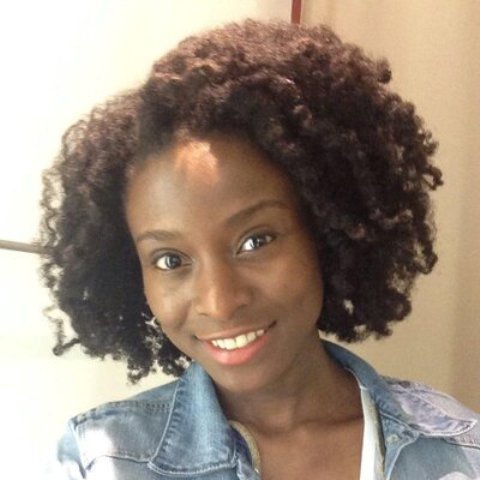By Khalifa Hemed
Published May 18, 2018
 The shortlist for the 2018 Caine Prize for African Writing has been announced.
The shortlist for the 2018 Caine Prize for African Writing has been announced.
On the list announced on May 15, 2018 by Jury chair Dinaw Mengestu are five writers; three Nigerians, a Kenyan and a South African.
While the winner of the £10,000 prize will be announced at an award ceremony and dinner on July 2, 2018, all the shortlisted stories will be published in
June in New Internationalist’s 2018 Caine Prize anthology, Redemption Song, and through co-publishers in 16 African countries who receive a print-ready PDF
free of charge.
RELATED:African Arts Programmes Select Participants and Projects for Development
The shortlisted candidates for the 2018 prize are:
- Makena Onjerika (Kenya) for ‘Fanta Blackcurrant’, published in Wasafiri (2017)
- Wole Talabi (Nigeria) for ‘Wednesday’s Story’, published in Lightspeed Magazine (2016)
- Nonyelum Ekwempu (Nigeria) for ‘American Dream’, published in Red Rock Review (2016) and republished in The Anthem (2016)
- Olufunke Ogundimu (Nigeria) for ‘The Armed Letter Writers’, published in The New Orleans Review (The African Literary Hustle, 2017), and
- Stacy Hardy (South Africa) for ‘Involution’, published in Migrations: New Short Fiction from Africa, co-published by Short Story Day Africa and New
Internationalist (2017).
RELATED:Africa Holds Investment Forum to Mobilise Funds for Development of Infrastructure
 “The best short stories have a subtle, almost magical quality to them. They can contain through the rigour of their imagination and the care of their prose more than just a glimpse into the complicated emotional, political, and social fabric of their characters’ lives. The stories submitted for this year’s Caine Prize contained worlds within them, and nothing was perhaps as remarkable as finding that in story after story, writers across the continent and in the diaspora had laid waste to the idea that certain narratives belonged in the margins,” Mengestu, an Ethiopian-American author, says of the shortlist. “The politics and aesthetics of gender, sexuality, corruption and silence were a constant presence throughout many of the stories submitted, particularly those on our shortlist. These five remarkable narratives are proof that nowhere is the complexity and diversity of Africa and African lives more evident than in the
“The best short stories have a subtle, almost magical quality to them. They can contain through the rigour of their imagination and the care of their prose more than just a glimpse into the complicated emotional, political, and social fabric of their characters’ lives. The stories submitted for this year’s Caine Prize contained worlds within them, and nothing was perhaps as remarkable as finding that in story after story, writers across the continent and in the diaspora had laid waste to the idea that certain narratives belonged in the margins,” Mengestu, an Ethiopian-American author, says of the shortlist. “The politics and aesthetics of gender, sexuality, corruption and silence were a constant presence throughout many of the stories submitted, particularly those on our shortlist. These five remarkable narratives are proof that nowhere is the complexity and diversity of Africa and African lives more evident than in the
stories we tell.”
RELATED:How Imperial Presidency and Corruption Subvert Good Governance in Kenya
 Other members of the Jury include Henrietta Rose-Innes, a South African author and winner of the 2008 Caine Prize; Lola Shoneyin, author and Director of the
Other members of the Jury include Henrietta Rose-Innes, a South African author and winner of the 2008 Caine Prize; Lola Shoneyin, author and Director of the
Ake Arts and Books Festival; and Ahmed Rajab, a Zanzibar-born journalist, political analyst and essayist.
According to the Press Statement, the Caine Prize, awarded annually for African creative writing, is named after the late Sir Michael Caine, former Chairman
of Booker plc and Chairman of the Booker Prize management committee for nearly 25 years.
The Prize is awarded for a short story by an African writer published in English (indicative length 3,000 to 10,000 words). An African writer is taken to
mean someone who was born in Africa, or who is a national of an African country, or who has a parent who is African by birth or nationality.
RELATED:Women’s Writing Contest Calls for Entries
 Previous winners of the Caine Prize for African Writing are Sudan’s Leila Aboulela (2000), Nigerian Helon Habila (2001), Kenyan Binyavanga Wainaina (2002), Kenyan Yvonne Owuor (2003), Zimbabwean
Previous winners of the Caine Prize for African Writing are Sudan’s Leila Aboulela (2000), Nigerian Helon Habila (2001), Kenyan Binyavanga Wainaina (2002), Kenyan Yvonne Owuor (2003), Zimbabwean
Brian Chikwava (2004), Nigerian Segun Afolabi (2005), South African Mary Watson (2006), Ugandan Monica Arac de Nyeko (2007), South African Henrietta Rose-
Innes (2008), Nigerian EC Osondu (2009), Sierra Leonean Olufemi Terry (2010), Zimbabwean NoViolet Bulawayo (2011), Nigerian Rotimi Babatunde (2012), Nigerian
Tope Folarin (2013), Kenyan Okwiri Oduor (2014), Zambian Namwali Serpell (2015), South African Lidudumalingani (2016); and Sudanese writer, Bushra al-Fadil
(2017).




